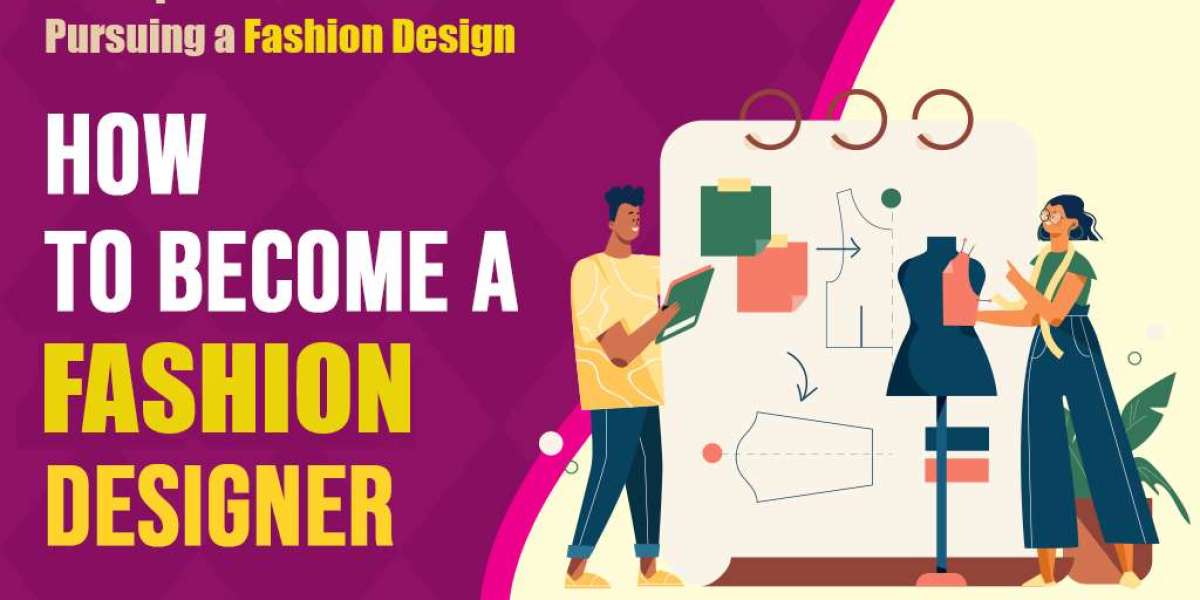Fashion is more than just clothing; it’s a form of artistic expression, a cultural statement, and an ever-evolving industry. If you’re passionate about style, creativity, and the world of clothing, pursuing a fashion design course could be your gateway to a fulfilling and dynamic career. This comprehensive guide will provide you with an in-depth understanding of fashion design courses, the industry, and the steps you need to take to embark on this exciting journey.
Understanding Fashion Design
1 What is Fashion Design?
Fashion design is the art of creating clothing and accessories that are not only functional but also aesthetically pleasing. It involves a creative process that includes concept development, sketching, fabric selection, pattern making, and garment construction.
2 The Fashion Industry
The fashion industry is a multi-billion-dollar global enterprise that encompasses various sectors, including design, manufacturing, marketing, and retail. It’s a dynamic and highly competitive field, with opportunities for fashion designers, stylists, fashion marketers, and more.
The Importance of Education
1 Why Pursue a Fashion Design Course?
A formal education in fashion design offers several benefits, such as:
- Skill development: You’ll learn the technical and artistic aspects of design.
- Industry insights: Gain a deep understanding of the fashion industry.
- Networking opportunities: Connect with professionals and fellow students.
- Portfolio building: Create a strong body of work to showcase your talent.
- Access to resources: Use state-of-the-art facilities and equipment.
Read More: List of IIT and IIM Colleges in India
Types of Fashion Design Courses
There are various types of fashion design courses to choose from, including:
Bachelor’s degree programs: Comprehensive, often four-year programs that cover various aspects of fashion design.
Diploma or certificate courses: Shorter, more focused programs that emphasize practical skills.
Specialized courses: Programs that focus on a specific area of fashion, such as apparel design, accessory design, or textile design.
Choosing the Right Course
1. Accreditation and Reputation
Research and select an institute with a reputable fashion design program. Check for accreditation and read reviews from current and former students.
2. Curriculum and Specializations
Evaluate the course curriculum. Look for programs that cover essential topics like sketching, pattern-making, textiles, and garment construction. Consider any available specializations that align with your interests.
3. Admission Requirements
Understand the admission requirements for your chosen program. This typically includes submitting 12th-grade transcripts, and some institutions may require an entrance exam or a portfolio showcasing your creative work.
4. Duration and Internships
Consider the duration of the course. Bachelor’s programs usually last 3–4 years, while diploma courses are shorter. Programs that offer internships or practical experience can be highly beneficial for building your portfolio and industry connections.
5. Campus and Facilities
Visit the institute’s campus or research online to learn more about the facilities available. A well-equipped fashion design lab, sewing machines, design studios, and a fashion library can enhance your learning experience.
Read More: List of Top Universities and Colleges in India
Your Career in Fashion Design
1. Career Opportunities
After completing your fashion design course, you can explore various career opportunities, including:
- Working for established fashion designers or fashion houses.
- Starting your own fashion brand.
- Specializing in areas like accessory design or textile design.
- Exploring roles in fashion marketing, merchandising, or retail management.
2. Networking and Self-Promotion
Building a strong professional network is essential in the fashion industry. Attend fashion events, connect with industry professionals, and use social media and online platforms to showcase your work and promote your brand.
Building Your Career
1. Entry-Level Positions
Begin your career as an assistant or junior designer. These roles allow you to learn from experienced professionals, gain industry exposure, and build a strong foundation in design.
2. Specialization
As your career progresses, consider specializing in a niche area of fashion design, such as haute couture, bridal wear, accessories, or sustainable fashion. Specialization can set you apart and open up unique opportunities.
3. Networking
Networking is key in the fashion industry. Attend fashion events, join professional associations, and connect with fellow designers, manufacturers, and retailers. A strong network can lead to collaborations and partnerships.
Entrepreneurship
1. Starting Your Own Brand
If you aspire to have your own fashion label, be prepared for the challenges of entrepreneurship. This involves creating a business plan, securing funding, sourcing materials, and marketing your brand.
2. Online Presence
In today’s digital age, an online presence is essential. Create a professional website and leverage social media to showcase your designs, connect with your audience, and reach potential clients.
Conclusion
In conclusion, pursuing a career in fashion design is an exciting and rewarding journey that allows you to transform your creativity into a profession. It’s a field that demands passion, dedication, and continuous learning. With the right education and a strong commitment to your craft, you can make a mark in the ever-evolving world of fashion. Whether you dream of designing clothing that graces the runways of Paris or starting your own fashion empire, your journey begins with the right fashion design course. Embrace the art of fashion, and let your creativity shine in the world of style and design.
Myfirstcollege.com is the most coveted educational portal that rose to its excellence with the advent of digital technology. It aims to provide one single platform to all the students/learners who want to get information on the Top colleges and Universities in India with other necessary details like course programs, online programs, and other professional, executive Doctoral programs, admission criteria, fee structure, and campus placement.
In fact, this education portal can give access to all kinds of information that a student need to enroll in a course program. These e-learning platforms have emerged as powerful tools for students, educators, and lifelong learners to access educational resources, interact with peers, and enhance their skills. An education portal is an online platform that provides a centralized hub for educational resources, including online courses.
Original Post Content: https://topuniversitiesindiaadmissions.blogspot.com/2023/10/pursuing-career-in-fashion-design-after.html









